Search
Did you mean: Cimon?
Search Results
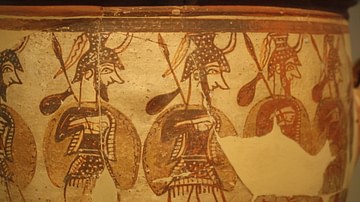
Definition
Mycenaean Art
The Mycenaean civilization flourished in the late Bronze Age from the 15th to the 13th century BCE, and their artists would continue the traditions passed on to them from Minoan Crete. Pottery, frescoes, and goldwork skillfully depicted scenes...
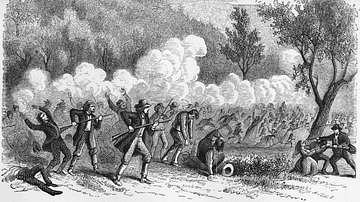
Definition
Mountain Meadows Massacre
The Mountain Meadows Massacre (11 September 1857) was a conflict between the Mormons (Church of Jesus Christ of Latter-day Saints) and the wagon train of the Baker-Fancher party, who were traveling through Utah to California, resulting in...

Definition
Heka
Heka is the god of magic and medicine in ancient Egypt and is also the personification of magic itself. He is probably the most important god in Egyptian mythology but is often overlooked because his presence was so pervasive as to make him...
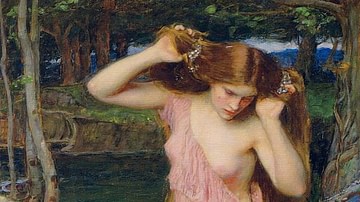
Definition
Lamia
Lamia is a female or a hermaphroditic demon found in Greek mythology who devoured children and seduced men. She appears in literature as early as the 6th century BCE and is said to be fearsome to look upon with an ugly face, the upper body...
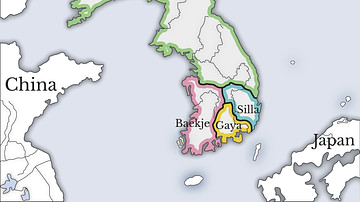
Definition
Three Kingdoms Period in Korea
The Three Kingdoms Period of ancient Korea (57 BCE – 668 CE) is so-called because it was dominated by the three kingdoms of Baekje (Paekche), Goguryeo (Koguryo), and Silla. There was also, though, a fourth entity, the Gaya (Kaya) confederation...

Definition
Ahriman
Ahriman is the evil spirit in Early Iranian Religion, Zoroastrianism, and Zorvanism, Lord of Darkness and Chaos, and the source of human confusion, disappointment, and strife. He is also known as Angra Mainyu (evil spirit or dark spirit...
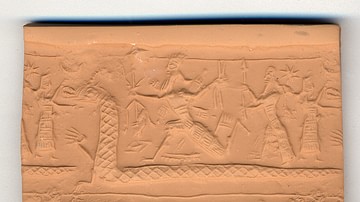
Definition
Tiamat
Tiamat is the Mesopotamian goddess associated with primordial chaos and the salt sea best known from the Babylonian epic Enuma Elish. In all versions of the myth, following the original, Tiamat always symbolizes the forces of chaos, which...

Definition
Ancient Korean Architecture
The architecture of ancient Korea is epitomised by the artful combination of wood and stone to create elegant and spacious multi-roomed structures characterised by clay tile roofing, enclosures within protective walls, interior courtyards...
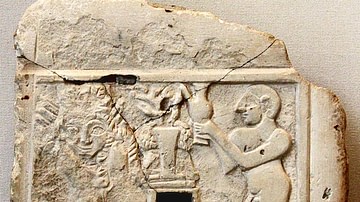
Definition
Ninhursag
Ninhursag (also Ninhursaga) is the Sumerian Mother Goddess and one of the oldest and most important in the Mesopotamian Pantheon. She is known as the Mother of the Gods and Mother of Men for her part in creating both divine and mortal entities...

Definition
Ancient Persian Mythology
The mythology of ancient Persia originally developed in the region known as Greater Iran (the Caucasus, Central Asia, South Asia, and West Asia). The Persians were initially part of a migratory people who referred to themselves as Aryan...